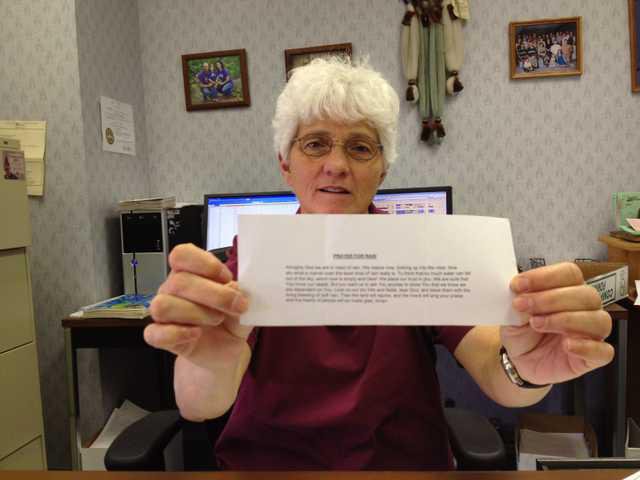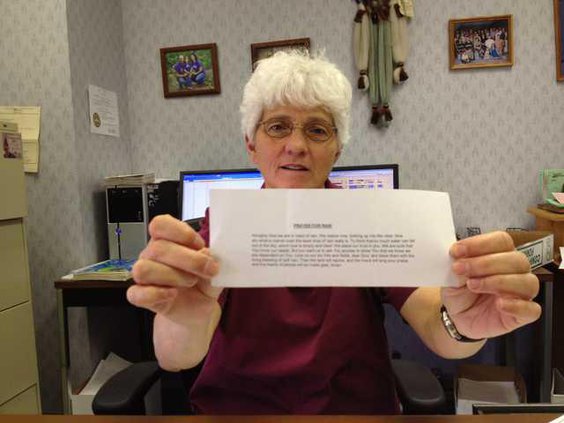The 2012 wheat harvest is the earliest on record in Great Bend, said Rosie Meier, a grain accountant with Great Bend Co-op. The first truckload of wheat was unloaded at their Great Bend facility at 1:02 p.m. on May 24. It’s also one of a handful of short crop years Meier can rattle off by memory 42 years into her career. She knows of only one possible exception, 1952, the year she was born, when it may have began earlier. On Monday, Meier said the wheat harvest is about 50 percent complete.
Typically, harvest starts on the average between June 16 and 21.
Six weeks ago, staff at the Co-op thought they might have to store grain on the ground, but then things changed. Today, Meier thinks they’ll have capacity in the elevator. Test weights have ranged from 51 to 62.
“The 62 is excellent, but the 51 is number five grade, and that’s terrible.” Two weeks ago, Meier thought it would all be 51 or 52 or 53 pounds of shriveled up stuff. Some fields are showing heads that are nearly white at the top, partially empty of grain thanks to the lack of moisture that has persisted in the area for the past two months. Meier predicts average test weights will be 58.6, and average yields will be 32 bushels per acre. The best year on record for Great Bend was 2003, when the Co-op took 4.9 million bushels, she says. This year, the Co-op will be lucky to take 2.6 million.
“All we needed was one or two more rains, and we would have had double the wheat our there,” she said. Last weekend’s rain didn’t help. It simply slowed down harvest.
Celia Nicolet, a Great Bend farmer for the past 30 years, said this is the earliest they’ve ever began cutting. Her son Darren and his new wife Heather worked to cut wheat in their field south of Great Bend Monday afternoon. That field was one of the best so far, with Nicolet predicting a yield in the 30s. Other fields, however, have been as low as 14, son Darren said. He is a fifth-generation farmer, and he, his wife, and cousin Kyle Bussen make up what may be one of the county’s youngest harvest crews with all three under the age of 26. The family farms 2,000 acres in Barton County.
Meier prays for more rain to ensure a good fall harvest. The last really good year she can recall was 2008. Since then, it’s been hit or miss between drought and hail. Last year, with over 50 consecutive days over 100 degrees, crops stood little chance of survival, let alone harvest. A mild winter with little snow fall and a spring with little rain have led to a continuation of dry conditions.
“I’m surprised the dryland corn is still hanging on like it is,” Meier said. “It’s not all withered up and brown already, but if we don’t get some rain it is going to be.”
With temperatures predicted in the low to mid-90s and little chance of precipitation for the remainder of the week, she is concerned some farmers may decide to cut back on planting. Already, Meier says if it doesn’t rain, several farmers have said they aren’t going to plant milo, and the chances of planting soybeans to follow wheat go down too. While families like the Nicolets are still planning to plant milo in coming weeks, if dryland crops don’t get rain, they won’t survive. It would just be a waste of seed, Meier said. Even irrigated land is at risk, with demand for well water increasing as one clear day after another passes.
Earliest harvest on record leaves county searching skies for rain





